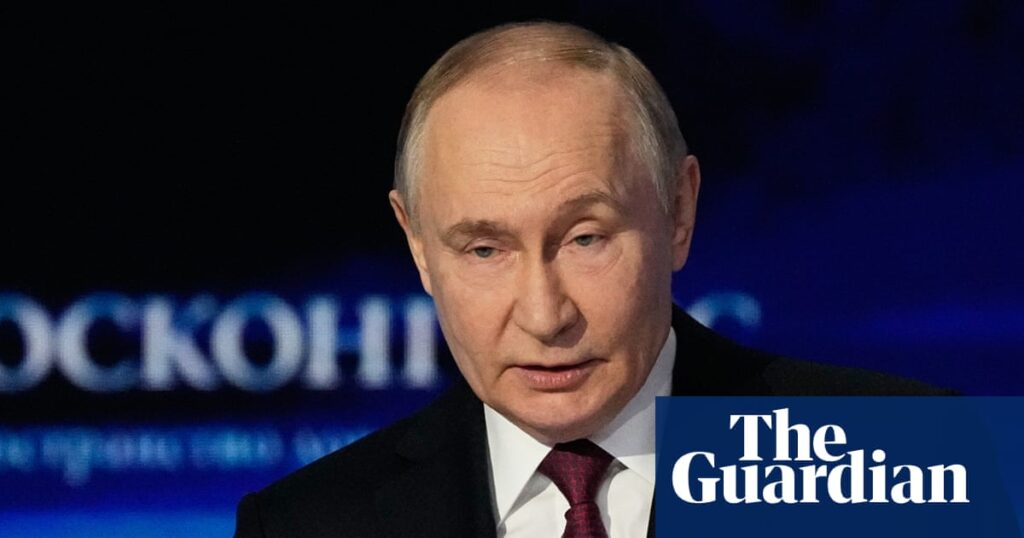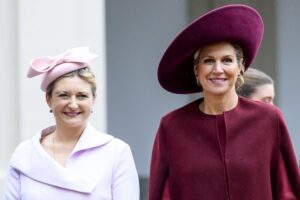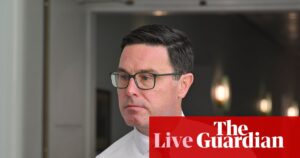
Volodymyr Zelenskyy, the President of Ukraine, has voiced concerns in Washington over Russian President Vladimir Putin’s recent overtures to former U.S. President Donald Trump. Zelenskyy suggests that Putin’s eagerness to engage in dialogue with Trump indicates a defensive posture from Moscow. “We can already see that Moscow is rushing to resume dialogue as soon as it hears about Tomahawks,” Zelenskyy remarked, referring to discussions about the U.S. possibly supplying long-range cruise missiles to Ukraine.
Trump announced plans to meet with Putin in Budapest, Hungary, a location where both leaders have a mutual ally in Prime Minister Viktor Orbán. “Putin is trying to derail the momentum toward greater pressure on Russia,” commented Dan Fried, a former U.S. State Department official. “We’ll see what happens tomorrow [on Friday, with Zelenskyy due to meet Trump] but the chances of moving toward a ceasefire by pushing Russia to get serious seem to have diminished.”
Trump and Putin’s Diplomatic Maneuvering
In recent weeks, Trump had been increasingly critical of Russia, but this stance appeared to shift following a call with Putin, which the Kremlin described as “extremely frank and trustful.” The planned meeting between Trump and Putin has been welcomed by Orbán, who stated, “The planned meeting between the American and Russian presidents is great news for the peace-loving people of the world. We are ready!” Orbán, a leader within the EU and NATO, has often complicated efforts to support Ukraine in the ongoing conflict.
Meanwhile, the European Union is implementing a new requirement for fuel importers to verify that their products are not derived from Russian crude oil. This measure is part of the EU’s 18th sanctions package against Russia, set to take effect on January 21 next year. The market is already responding, with some Indian refiners preparing to reduce Russian oil imports. “This is a positive development for the crude oil price as it would remove a big buyer of Russian oil,” noted Tony Sycamore, a market analyst at IG.
Russian Energy and Military Actions
Vladimir Putin has criticized what he terms “unfair” practices against Russian oil, asserting that it remains one of the world’s leading producers despite sanctions. Speaking at a Moscow conference on energy, Putin accused European nations of harming their own economies by reducing Russian gas purchases and condemned Western restrictions on exporting equipment to Russia’s oil industry.
Concurrently, Russia launched a significant drone and missile attack targeting gas facilities in eastern Ukraine. Hundreds of drones and missiles, along with glide bombs, were deployed, causing outages in eight regions. “This autumn, the Russians use every single day to strike at our energy infrastructure,” Zelenskyy stated, highlighting the impact on areas including Chernihiv, Kharkiv, Poltava, Sumy, and Vinnytsia.
The Shebelinka gas processing plant in the Kharkiv region was among the targets, suffering damage from early morning drone and missile strikes. The Russian defense ministry claimed these attacks were a response to Ukrainian assaults on Russian infrastructure, although such strikes on civilian power infrastructure have been a recurring tactic since Russia’s invasion of Ukraine in 2022.
International Reactions and Future Prospects
Olga Stefanishyna, Kyiv’s envoy to Washington, condemned Russia’s actions as “terror,” asserting that they undermine peace efforts. “Russia once again chose missiles over dialogue, turning this attack into a direct blow to ongoing peace efforts led by President Trump,” she stated. The European Union, in response, is advancing plans to bolster its defenses against drone attacks. Kaja Kallas, the EU’s foreign policy chief, announced a new anti-drone system expected to be operational by 2027, as part of a broader initiative to strengthen the EU’s eastern defenses by 2028.
Brussels is seeking the support of EU leaders for these measures at an upcoming summit. The “eastern flank watch” program aims to enhance air and ground defenses along the EU’s border with Russia. As the geopolitical landscape continues to evolve, the international community remains vigilant, balancing diplomatic efforts with strategic defense initiatives.





